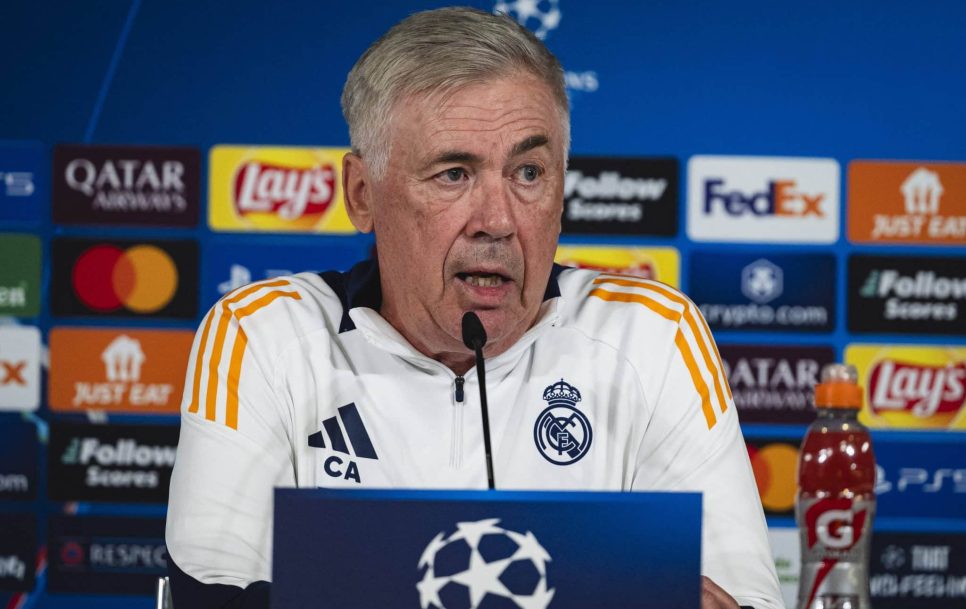The revamped Champions League: just a gimmick or better than ever?
It is that time of the year again! The beloved Champions League returns for its 70th anniversary season. But many things will be different this time, with more teams included, more matches to come, and – hopefully – more fun for everyone. Let’s have a look.
There have been many minor tweaks here and there along the way, but the current format change will certainly be the biggest since the round-robin group stage was introduced in 1992, arguably just the second of this magnitude ever, and the first change since 2003. Not everything that looks good on paper does function as intended, however. For now, we can only speculate and hope for the best.
What has changed? The newly adopted format will see 36 teams participate (previously 32), with the number of total games increased to 189 (125). All teams will play a minimum of eight games (six). It will now be impossible to pull a “Sevilla”, meaning drop to the Europa League after the group stages and win that; once you are out, you are out. The winter break was also shortened: the group stage will not be completed before the end of January, with the knockout phase following in early February.
How will it work? All 36 teams form one gigantic league. The pairings were drawn from four pots of eight teams based on UEFA club coefficients, with each team playing four home and four away games, with two opponents from each pot. After eight matches, the eight best teams advance to the round of 16 while teams placed 9th to 24th will have to go through a two-legged play-off. The rest are eliminated. The knockout phase remains familiar from the Round of 16 onwards.
Key dates? MD1 will be held between September 17th and 19th, MD8 on January 29th, and the final on May 31st, 2025 at the Allianz Arena in Munich. A total of 16 weeks of Champions League football will be played in 2024/25 as opposed to 14 in the seasons before.
Any interesting match-ups? Plenty. MD1 will see AC Milan host Liverpool (September 17th); Arsenal and PSG meet on October 1st, and Bayern Munich will travel to Barcelona on October 23rd before a meeting between Bayern and PSG on November 26th. Oh, and how about Liverpool vs Real Madrid the next day? PSG, who did not have much luck with the draw, will also meet Manchester City on January 22nd.
Who will win it all? The Champions League might be both the hardest and the easiest trophy to win. You do not have to be consistently great for 38 games, but any small mistake can cost even the biggest teams over 180 minutes of football. According to Opta, Manchester City are the favourites (24.9%) with perennial winners Real Madrid second (17.8%). But even Sparta Praha and Club Brugge are given a 0.1% chance!
Factsheet MD1
Juventus v PSV | PSV Eindhoven have never won away from home against an Italian side in the UEFA Champions League (D2 L4), while they have scored just two goals across those six trips.
AC Milan v Liverpool | Liverpool have won all three of their UEFA Champions League games at the San Siro, winning 1-0 in 2008 and 2-0 in 2022 against Inter, and 2-1 against Milan in 2021; they are the only team to play there more than once as a visiting side in the competition while maintaining a 100% record.
Bayern Munich v Dinamo Zagreb | Bayern Munich have won their opening match in each of their previous 20 UEFA Champions League seasons, with 2002-03 being the last time they failed to do so. Across those 20 matches, Bayern have scored a total of 51 goals and only conceded five times.
Real Madrid v Stuttgart | Real Madrid have failed to score in only one of their last 74 home matches in the UEFA Champions League, with that exception coming against CSKA Moscow in the group stage in December 2018 (0-3).
Club Brugge v Borussia Dortmund | Borussia Dortmund had the joint-most different goalscorers in the UEFA Champions League in 2023-24, with 12 different players netting for them in the previous edition.
Manchester City v Inter Milan | Manchester City’s Erling Haaland has scored 41 goals in 39 appearances in the UEFA Champions League to date. Among players with at least five games in the competition, he is the only one who has been able to maintain an average of a goal per game (1.05).
PSG v Girona | PSG scored 10 goals in the opening 15 minutes of the second half in the UEFA Champions League last season; the most of any team in this period. More than half of their goals in the competition last term were scored during that period (10/19).
Monaco v Barcelona | Barcelona manager Hansi Flick has the best win percentage (89%) in UEFA Champions League history of any manager to take charge of more than one game, winning 16 of 18 games with Bayern Munich between 2019 and 2021 (D1 L1). Bayern scored 3.2 goals per game under Flick, also the best goals per game ratio for any manager in the competition.
Atalanta v Arsenal | Atalanta’s 23 UEFA Champions League matches have seen 3.6 goals per game (40 for, 43 against), the second-most of any team to feature 20+ times in the competition, behind Viktoria Plzen (3.8 per game).
Atletico Madrid v RB Leipzig | Atletico Madrid were the only side with a 100% home win ratio in last season’s UEFA Champions League, winning all five games.







